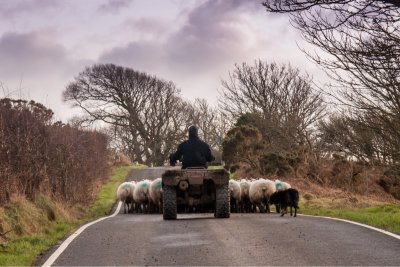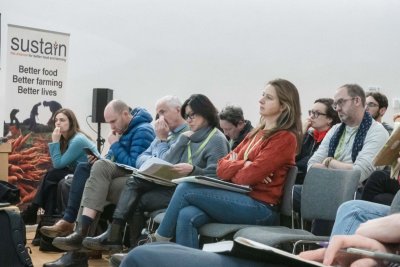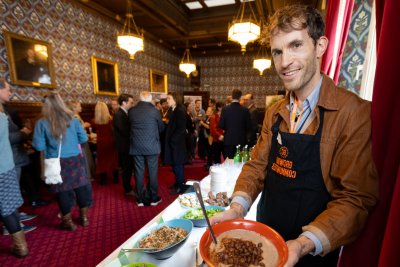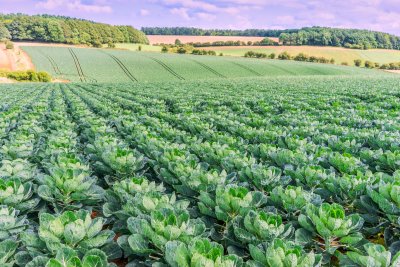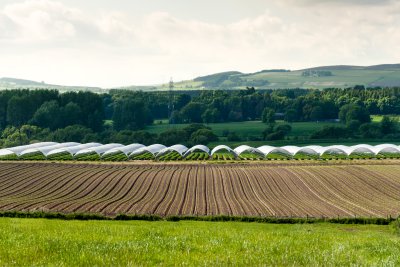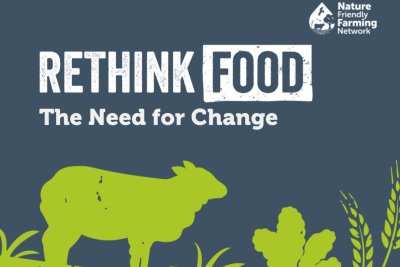 REthink Food The Need for change. Credit: NFFN
REthink Food The Need for change. Credit: NFFN
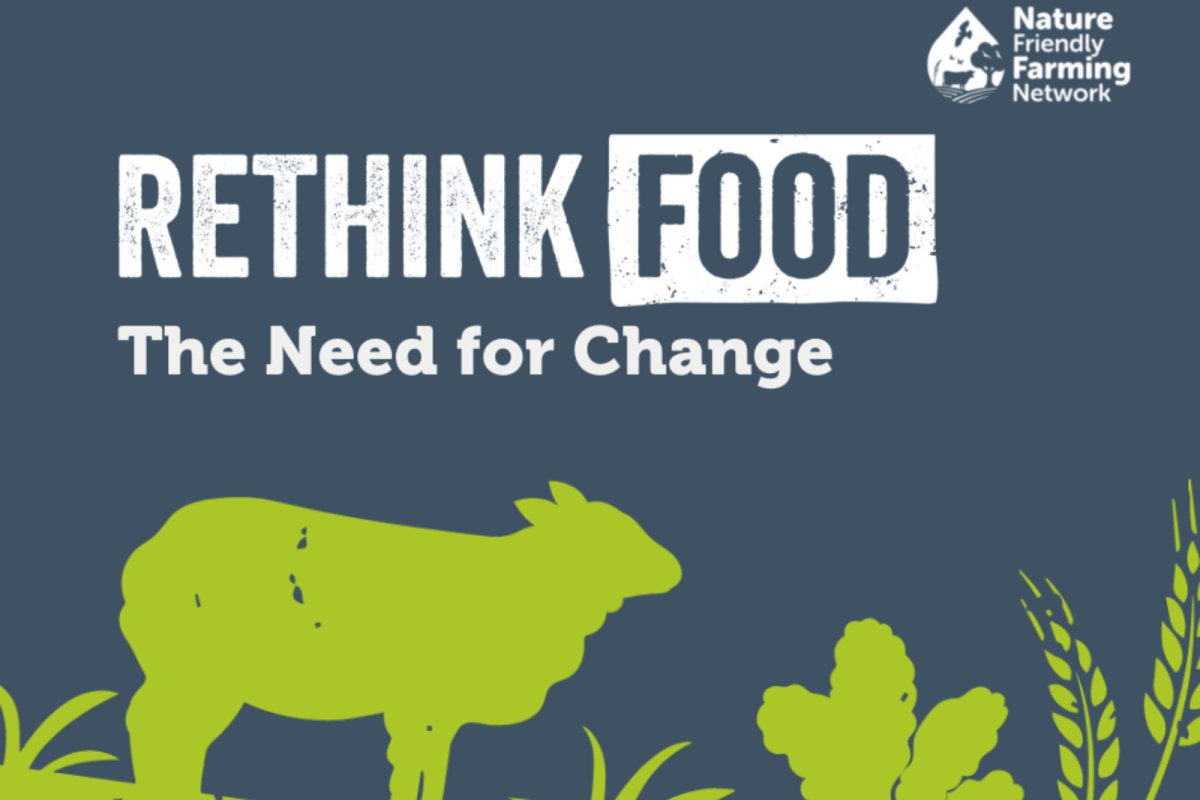
Rethink Food: The Need for Change - New report on the role of British farming in a resilient food system
The Need for Change – published by Sustain member Nature Friendly Farming Network – is a new report examining how food system change is needed to support the transition to nature-friendly farming or risk undermining long-term food security.
The report sets out why farm payments for improvements to soil health, biodiversity and climate mitigation ensure viable UK food production and bolster necessary adaptation to a warming climate.
At a time of global food insecurity resulting from the pandemic and the war in Ukraine, the report argues that fragilities in the food system have long been present. Current research predicts that the land's overall productive capacity will reduce due to climate change, increasing supply and demand pressure, and making on-farm adaptation through nature-friendly systems a priority.
It highlights the NFFN’s manifesto for how it endorses food system change across seven areas, including prioritising the right outputs in the right areas, harnessing opportunities for producing a wider diversity of foods and improving the link-up between strategies for food, agriculture, trade and land use.
According to the report, the quantity of land used to feed animals and grow crops for bioenergy, including the volume of food wasted along the supply chain, are contradictory to food security:
-
In the UK, around 9.5 million tonnes of food were wasted in 2018 post-farmgate, equating to roughly 15 billion meals with an estimated value of £19 billion and accounting for 36 million tonnes of greenhouse gas emissions
-
The volume wasted would require an area close to the size of Wales for production
-
If every UK household stopped wasting food for one day, it would do the same for greenhouse gas emissions as planting 230 million trees yearly
-
Two million hectares, representing 40% of the UK’s entire arable land, are used to grow crops for animal feed. In comparison, only 2% of UK land is used for horticulture
The report sets out seven areas for achieving change, including prioritising the right outputs in the right areas, harnessing opportunities for producing a wider diversity of foods and improving the link-up between strategies for food, agriculture, trade and land use.
It recommends that payment schemes support farmers in creating greater ecological and agricultural diversity, including wider crop choices and livestock breeds, to help farms manage natural or economic shocks with less reliance on inputs. With the right incentives in place, farming can be the backbone of a resilient food-secure future that effectively safeguards nature, improves soil health and helps achieve net zero.
Martin Lines, NFFN UK Chair, said:
“Current research predicts the land's productive capacity will reduce due to climate change, threatening farming’s ability to produce food in the near future. Moving to farm systems that restore the natural environment and adapt to a changing climate, while mitigating the worst impacts, won’t delay achieving genuine food security, but hugely – and undeniably – contribute to it. We can’t afford any U-turns in the commitments made by the government post-Brexit.”
“Right now, our food system is inherently inefficient. It pushes short-sighted and often damaging intensive production at the expense of farming’s dependency on expensive inputs while wasting considerable volumes of food and drink along the way.”
Vicki Hird, Head of Sustainable Farming, Sustain Alliance said:
“We have choices in how we support farming in the UK and this report lays out a clear path we must take, as government, society and industry, if we want to feed ourselves and the next generations in healthy, sustainable and equitable ways whilst reducing our global impact. It makes it clear that we can produce enough good food, but only if we make the right policy choices – both on farm support which needs to come faster and be bigger in ambition and budget, but also a wider food system policy shift on waste, diets and to ensure access for all to high quality, affordable food with nature at its heart”.
Joan Edwards, director of policy, at The Wildlife Trusts:
“Farming can hold the key to restoring nature and tackling climate change, but we need to do things better. For that to happen, the current system must change. The ways we produce food currently leave us trapped in a dangerous cycle. This forces farmers to rely even more on dangerous chemicals and to further intensify methods, which leads to more problems for nature. Continuing down this path would be a disaster for people and the planet. It’s time to rethink how we manage land to produce healthy, sustainable food and restore our fractured and fragmented natural world.”
you can read the report here.
Sustainable Farming Campaign: Pushing for the integration of sustainable farming into local, regional and national government policies.
Sustain
The Green House
244-254 Cambridge Heath Road
London E2 9DA
020 3559 6777
sustain@sustainweb.org
Sustain advocates food and agriculture policies and practices that enhance the health and welfare of people and animals, improve the working and living environment, promote equity and enrich society and culture.
© Sustain 2026
Registered charity (no. 1018643)
Data privacy & cookies
Icons by Icons8
